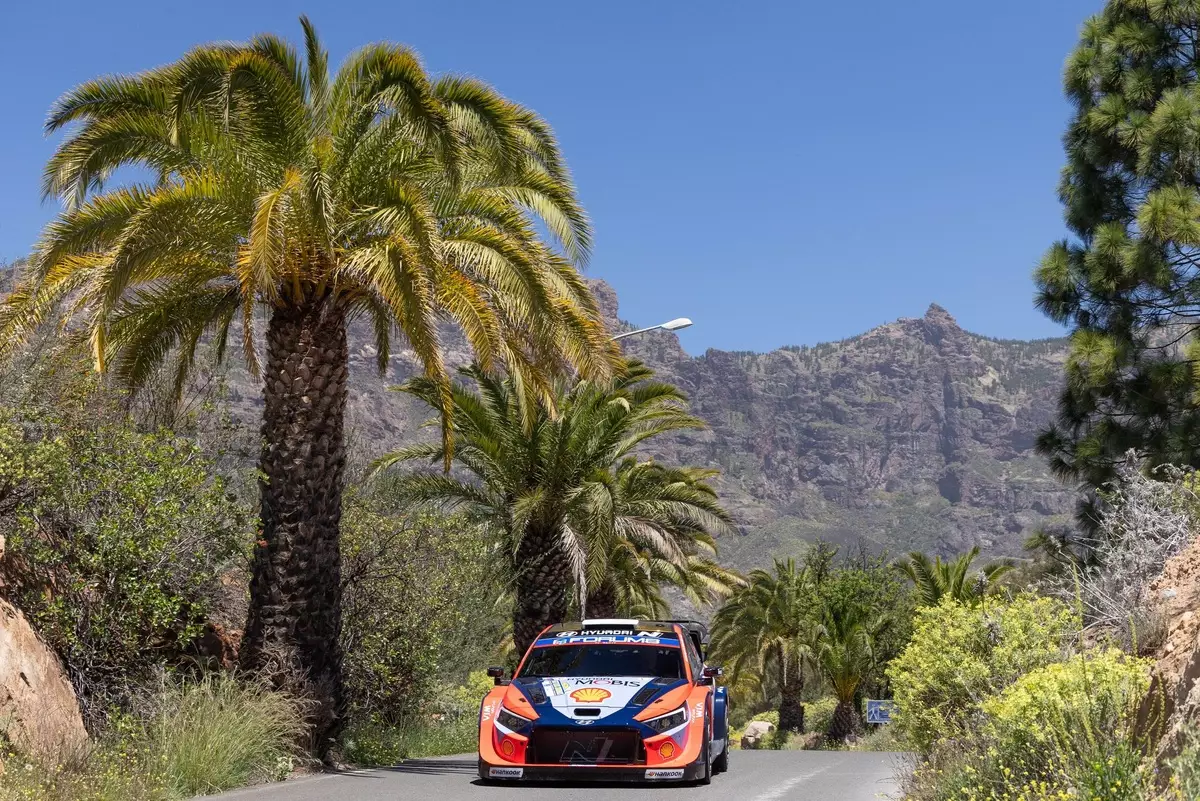The recent performance of Hyundai at Rally Islas Canarias serves as a stark reminder of the challenges inherent in the World Rally Championship (WRC). Despite arriving in the Canary Islands with a foundation of confidence—born from solid performances in prior asphalt events—Hyundai faced a critical assessment following a dismal showing against its rival, Toyota. The 1-2-3-4 finish by Toyota was not just a contrast in performance; it illustrated a wider issue of preparedness that has become increasingly relevant as teams battle for supremacy in the highly competitive arena of rally racing.
Hyundai’s Thierry Neuville had shown promising pace during the earlier Rally Sierra Morena, leading many to believe that the team could sustain its momentum. However, upon facing the unique and demanding conditions of the Canary Islands, it became evident that the team was ill-equipped, both in setup and strategic approach. The inability to optimize the Hankook hard compound tyres and the lingering impact of pre-selected differential settings demonstrated that fundamental aspects of their vehicle, the i20 N Rally1, required urgent attention.
The Significance of Performance Variability
What transpired in the Canaries was not merely an isolated incident; it raised questions about Hyundai’s understanding of performance variables in rallying, particularly on highly specific terrains. Adrien Fourmaux, who managed to secure the highest finish for Hyundai at fifth place, distanced himself from the broader struggles of his teammates by selecting a different differential setup. His performance underlines the importance of adaptability and engineering flexibility within a racing team. However, it also begs the question: why didn’t the entire team formulate a more dynamic approach to setup during an event known for its unique asphalt conditions?
The difference in strategy highlighted Hyundai’s limited foresight when confronted with an atypical event. What should have been a competitive race turned into a stark evaluation of what was lacking from their preparations. There were insights gleaned throughout the competition; however, the lessons learned often come at a great cost in the high-stakes world of WRC.
Lessons Learned or Systems Failed?
Tanak’s assessment of the team’s plight reveals deeper-seated issues, particularly his assertion that the rally unmasked fundamental problems with their vehicle’s performance. The distinction between understanding a failure and translating that understanding into effective change is crucial. While rallying can be unpredictable, preparation should remain robust—especially for a team of Hyundai’s stature. Tanak expressed his frustrations with an honesty that resonates deeply within competitive circles, claiming that identifying the root causes of their performance woes was “not straightforward.”
The tension between immediate gratification in race performance and long-term development strategies is ever-present. Fourmaux’s optimism about potential improvements feels like a beacon of hope amid the uncertainty; however, it hardly mitigates the disappointment of fans and stakeholders who had high expectations for the team’s performance. Hyundai finds themselves at a crossroads—acknowledging the need to adapt while also grappling with their current limitations.
Looking Ahead: The Road to Redemption
As Hyundai shifts its focus to upcoming WRC events, particularly the Central European Rally, the urgency to recalibrate strategies becomes paramount. The concept of utilizing a homologation joker indicates an awareness that significant adjustments may be required to match Toyota’s dominance. While the team insists that the problems encountered in the Canary Islands were rally-specific, the specter of underperformance looms large.
The commitment to self-evaluation and rigorous improvement not only emerges as a necessity but also as a potential catalyst for future victories. Both Tanak and Fourmaux’s sentiments suggest a resilient spirit within Hyundai that may soon reignite their competitive edge. Team dynamics can often shift rapidly in motorsport, and if Hyundai can harness the insight gained from their Canary Islands struggles, they could emerge stronger—and more competitive—in the subsequent events.
At this juncture, as fans and analysts alike provide scrutiny, Hyundai has an opportunity to transform this setback into a learning experience, moving closer to both technical excellence and championship contention. The journey through the WRC is paved with lessons learned the hard way, yet the power to rebound and redefine their path remains squarely in their hands.


Leave a Reply